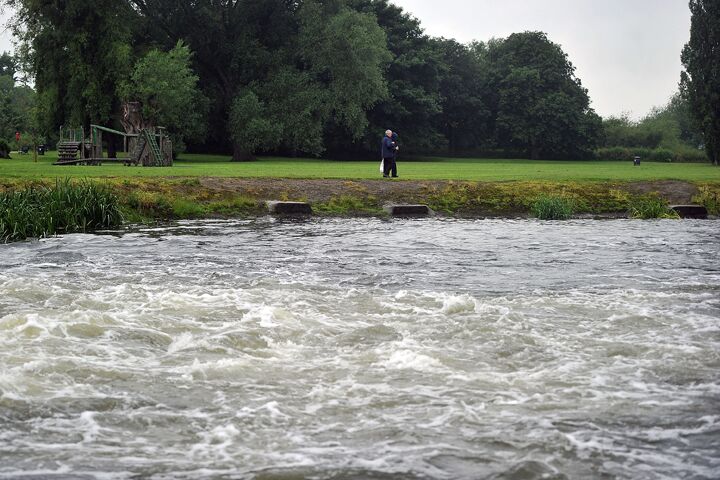
Britain: Rain Destroying Crops
Vegetables are rotting in the field after the wettest April-to-June period on record, as fields are too waterlogged for tractors to harvest them, according to Britain’s National Farmers Union (nfu). The unseasonably cold and wet weather is also killing bees and other wildlife.
“It’s been absolutely shocking,” one farmer told the Times in an article published July 9. “It’s the worst lambing season in 80 years. An animal needs so much dry matter per day, but they are getting full of water, not energy. They’re like men with a beer belly. They’re getting lame feet from constantly standing in a quagmire.”
The National Farmers Union warned that vegetables like broccoli, cabbages, carrots, cauliflowers and potatoes were rotting as farmers struggled to harvest them.
“Supply is going to be disrupted,” said the nfu’s chief horticulture adviser. “That’s a given. We just hope the weather picks up and we might be able to salvage something.”
English winemakers are also anxious about the weather—without sunny weather in the next few weeks they could have a very poor harvest. “If it rains a lot during this period we end up with a poor fruit,” Roy Cook of Sedlescombe Organic Wines told the Telegraph. “The flowers will just not turn to fruit.”
A survey by the British Beekeepers Association published last month found that the number of bee colonies in England had fallen by 16.2 percent from Oct. 1, 2011, to April 1, 2012. It warned that the wet weather “is likely to lead to further colony losses at a time when honey bee numbers would normally be rapidly increasing.”
Bees don’t usually leave their hives in cold or wet weather, meaning that many have been stuck inside living off stored food.
Because of this, fewer bees have been out pollinating plants. Apple farmers have been hit especially hard, with some reporting to have almost nothing to harvest. Recent estimates suggest that the number of apples harvested will be half the normal amount.
The Times quotes beekeepers saying things like, “I’ve been keeping bees for 30 years and this is the worst I’ve seen,” and, “It’s never been this bad in living memory.”
This comes after five years of steady decline in the number of bee colonies.
The National Trust warned that butterflies, hover-flies and moths are also suffering in the wet. Weather around the world is working against harvests. Birds too have been struggling to breed and find food for their young. “This is turning out to be an almost apocalyptic summer for most of our much-loved wildlife—birds, butterflies, bees,” said Matthew Oates, conservation adviser for the Trust.
Meanwhile, half the United States is in drought.
The Met Office—Britain’s weather service—pointed out that if the record-breaking wet months occurred at random, we would have expected there to have been one since 2006. Instead there have been four.
Each year the weather gets worse. Men look to global warming for a reason, but the Bible reveals that bad weather on this scale is a curse from God. “I caused it to rain upon one city, and caused it not to rain upon another city: one piece was rained upon, and the piece whereupon it rained not withered,” says the Bible (Amos 4:7). Today, British crops are rotting while American ones shrivel up.
Weather that is this consistently bad is not a coincidence. To read more on the causes of these global problems, read Chapter One of our free booklet Why ‘Natural’ Disasters?, titled “Something Is Wrong With the Weather.”
